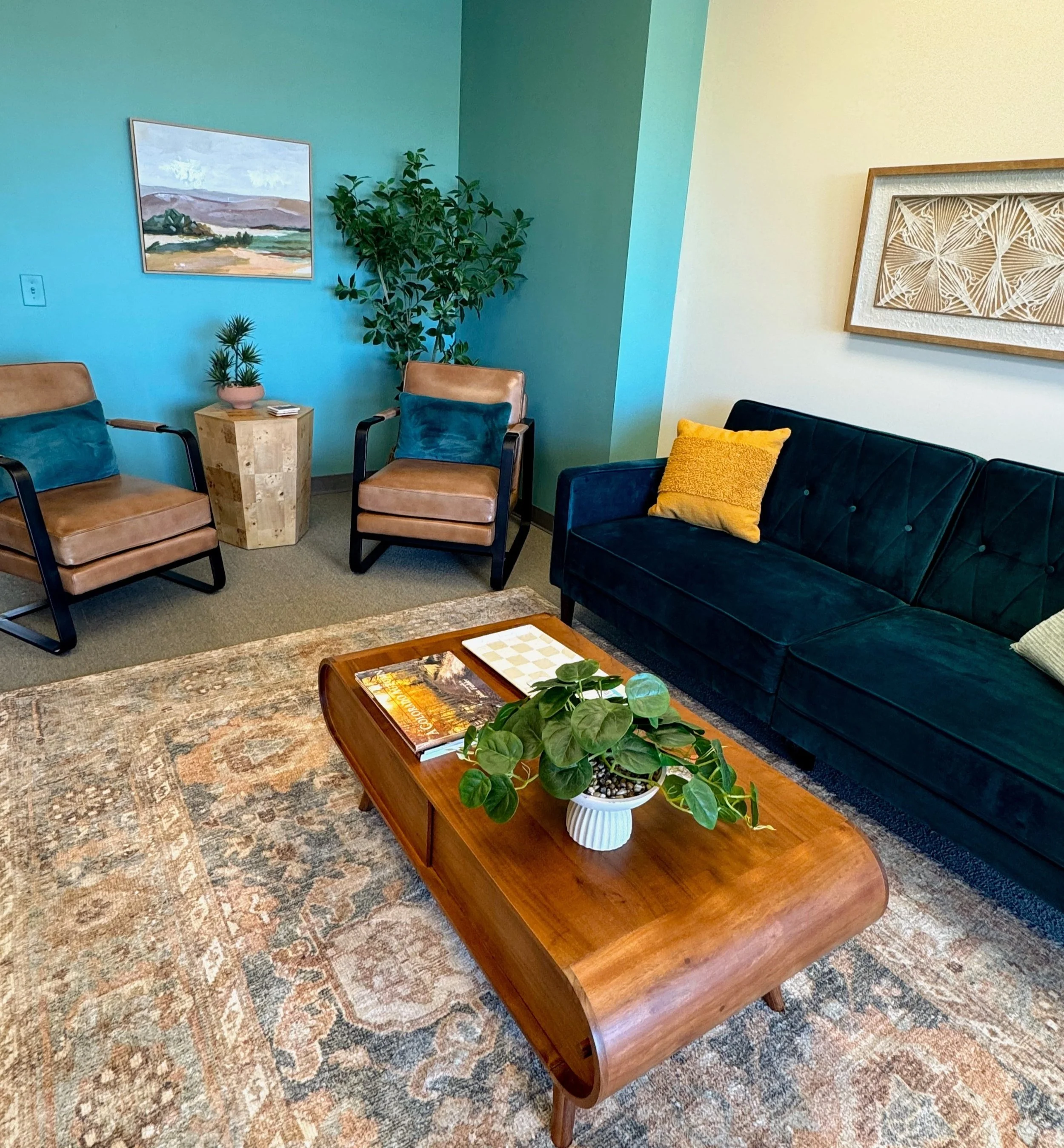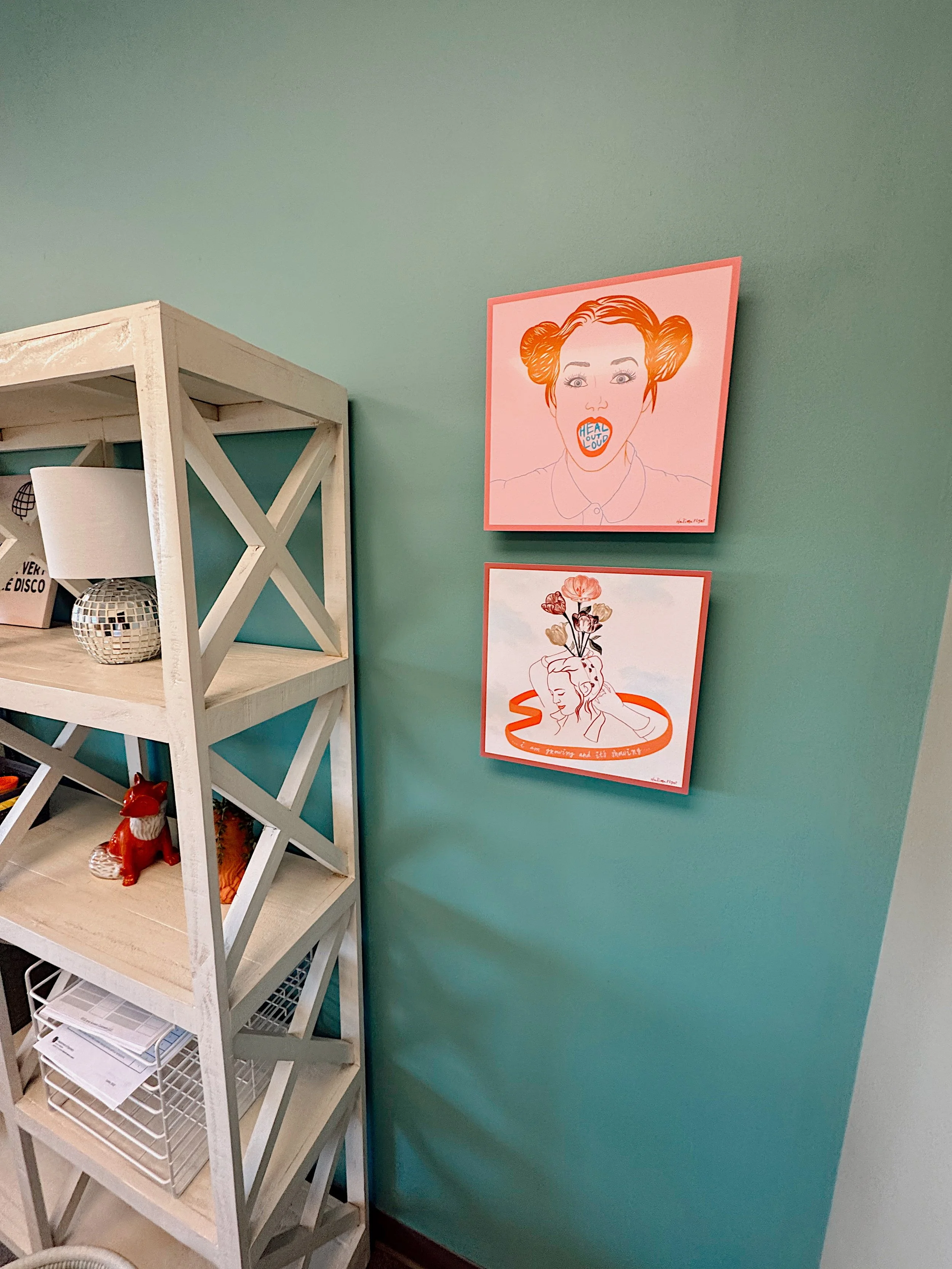
Intensive Outpatient Program (IOP)
for Adolescents
Based in Evidence-Based Treatment:
Exposure and Response Prevention (ERP) Therapy: The most effective treatment for OCD, ERP helps patients gradually confront anxiety-provoking situations while resisting compulsive behaviors, reducing fear over time.
Exposure: Exposure involves gradually and intentionally facing the thoughts, situations, or sensations that trigger anxiety or obsessions—instead of avoiding them. By approaching these fears step by step, the brain learns that they’re not actually dangerous, and that anxiety can decrease naturally over time.
Response Prevention: Response prevention means resisting the urge to perform compulsions—like checking, washing, or seeking reassurance—that temporarily relieve anxiety. By not engaging in these rituals, individuals learn that they can tolerate discomfort and that safety doesn’t depend on compulsive behavior.
Together, exposure and response prevention retrain the brain’s fear response, reduce the power of obsessions, and help individuals regain control from OCD. ERP is effective because it helps individuals learn that anxiety and distress can diminish over time without resorting to compulsions—a process known as habituation. Additionally, ERP facilitates inhibitory learning, where new, non-threatening associations are formed, reducing the power of obsessive fears.
For Parents:
Supportive Parenting for Anxious Childhood Emotions (SPACE): is an evidence-based, parent-focused treatment developed by Dr. Eli Lebowitz at the Yale Child Study Center. Designed for children and adolescents with anxiety disorders and obsessive-compulsive disorder (OCD), SPACE empowers parents to help their children by modifying their own behaviors, rather than requiring direct participation from the child.
Key Components of SPACE:
Parental Involvement: In SPACE, parents are the primary participants in therapy sessions. They learn strategies to support their child’s ability to cope with anxiety, focusing on their responses rather than attempting to change the child’s behavior directly.
Reducing Accommodations: Parents often make accommodations to alleviate their child’s anxiety, such as avoiding certain situations or providing constant reassurance. While well-intentioned, these behaviors can inadvertently reinforce anxiety. SPACE teaches parents to gradually reduce these accommodations, fostering the child’s independence and resilience.
Enhancing Supportive Responses: The program emphasizes the importance of parents responding to their child’s anxiety with empathy and confidence, conveying belief in the child’s ability to handle distressing situations.
Other Complementary Modalities We Use:
Acceptance and Commitment Therapy (ACT): When used complementary to ERP, ACT helps individuals with OCD and anxiety build psychological flexibility by accepting distressing thoughts and emotions without trying to control them. Through mindfulness and values-based action, ACT empowers patients to move toward a meaningful life—even in the presence of anxiety—enhancing the effectiveness and sustainability of exposure-based work.
Cognitive Behavioral Therapy (CBT): Complementary to ERP, CBT equips individuals with skills to identify and challenge unhelpful thought patterns that fuel anxiety and OCD. While ERP targets behavioral change through exposure, CBT adds cognitive tools to help patients understand and reframe distorted thinking—supporting deeper insight, emotional regulation, and long-term recovery.
Comprehensive, Interdisciplinary, Treatment:
In addition to our IOP Sessions, Tuesdays, Wednesdays and Thursdays from 12 PM to 3 PM. OAC offers a variety of therapy and treatment options tailored to meet the unique needs of adolescents and their families:
Individual Therapy: One-on-one sessions to develop strategies, build resilience, and address each patient’s specific challenges.
Family Therapy: Collaborative sessions that enhance family dynamics, improve communication, and strengthen support systems to create a more therapeutic home environment.
Parent Coaching: Education and support for parents, equipping them with tools to effectively manage their child’s anxiety and OCD symptoms.
Occupational Therapy: Targeted interventions to support patients in developing daily living skills, improving sensory regulation, and increasing independence across home, school, and social settings.
Education/Academic Coaching: Personalized support to build academic confidence, strengthen organization and time management skills, and help adolescents navigate school-related stress with greater ease.
Medication Management: Our psychiatric providers collaborate closely with the clinical team, clients, and families to ensure medications are thoughtfully prescribed and regularly monitored as part of a comprehensive care plan. Medication management is provided as part of our wraparound services to support adolescents and young adults in achieving meaningful, lasting progress.






